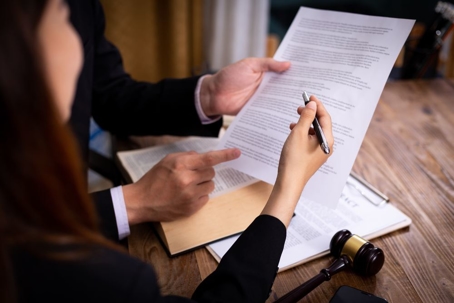In May 2010, University of Virginia lacrosse star Yeardley Love was beaten to death by her one-time boyfriend and Virginia lacrosse player George Huguely. Apparently jealous over Yeardley's relationship with another man, Huguely had sent her a threatening e-mail just one week before killing her in her own bedroom. Despite Huguely's threats, Yeardley would not have been eligible for a protective order against him based on Virginia law at the time.
Broadly, a protective order is one issued by a judge that may prohibit someone from threatening, hurting or contacting another person. A protective order is necessary to protect an individual facing a valid threat, but anyone who is the subject of a protective order is in a serious legal situation and should consult a knowledgeable criminal defense lawyer to protect his or her rights.
Until July 1, 2011, Virginia's protective orders were only available to victims on two bases. There must have either been some type of family or household connection, or an arrest warrant must have been issued for a stalking, assault or sexual battery offense. The law provided no option for those being harassed by strangers, neighbors, co-workers or even those in volatile dating relationships, if they fell outside those two categories.
A Needed Change
Ms. Love's untimely death drew national attention to Virginia's narrow law and prompted the state legislature to expand the scope of protective orders, making them available to anyone in fear of any "act of violence, force or threat." Virginia Gov. Bob McDonnell signed the bill into law after unanimous approval from the state's General Assembly.
Virginia law defines an "act of violence, force, or threat" as:
"any act involving violence, force, or threat that results in bodily injury or places one in reasonable apprehension of death, sexual assault, or bodily injury. Such act includes, but is not limited to, any forceful detention, stalking, criminal sexual assault in violation of Article 7 (&18.2-61 et seq.) of Chapter 4 of Title 18.2, or any criminal offense that results in bodily injury or places one in reasonable apprehension of death, sexual assault or bodily injury."
This broad definition grants greater protections than many other states, allowing nearly anyone to obtain a protective order. However, there are concerns about the Virginia court system's ability to process the number of applications. For example, Fairfax County, Virginia, processed three times more protective requests in 2011 than in 2010.
While most requests are legitimate, some are purely frivolous, which many blame on the statute's broad language.
Three Types of Protective Orders
Virginia law provides for three types of protective orders, which last for varying time durations. Emergency protective orders are available outside of regular courthouse hours and are effective for either 72 hours or until the court is next is session. The request is usually made orally and the person against whom the order is sought need not be present before the judge for the order to issue. However, the order is not effective until that person is personally served with the order.
Preliminary protective orders are made in writing and during regular courthouse hours. A preliminary order is the first step in obtaining a permanent order and requires an allegation of a recent "act of violence, force, or threat" or that an arrest warrant for such behavior has been issued. Like an emergency order, the abuser need not be present for the order to be granted, but it is only valid for approximately 15 days, when a full court hearing is set to decide if a permanent order is appropriate.
The Virginia judicial system has tried to simplify and expedite the application process by creating the free I-Can program, which is an online system to help petitioners obtain preliminary protective orders. The website provides guidance as to which Juvenile and Domestic Relations Court (for situations involving juveniles, or family or household members) or General District Court (for all other situations) the petitioner should file the application, along with the necessary forms.
A judge will weigh the allegations and the evidence at the full court hearing to decide if he or she will issue a permanent protective order. The person against whom the order is being sought must be personally served notice of this hearing and he or she must be present to allow him or her to contest the allegations. A permanent order can last as long as two years and can be extended for an additional two years if the court finds it necessary.
Family Abuse Protective Orders
In a domestic-violence situation, a court can issue a "family abuse" protective order. While any protective order can prohibit contact of any kind, additional threats and acts of violence, as well as any other necessary conditions, family abuse orders can go further by requiring an abuser to do the following:
- Maintain utility services for the home
- Provide appropriate alternative housing
- Allow temporary use of a jointly owned vehicle
- Participate in treatment and counseling
- Provide appropriate child support
- Consider parent-child visitation issues
- Address any other necessary matter
While Yeardley Love's death was a horrible and unnecessary tragedy, the silver lining is that Virginia law now provides greater protection to those facing acts of "violence, force, or threat."
However, if you or a loved one is unfairly the target of a petition for a protective order, contact an attorney to discuss your situation and your options.

